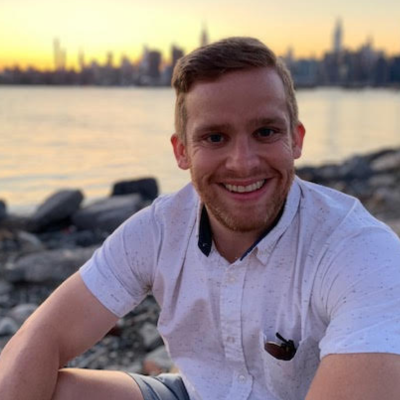As a child, I was frightened by lightning. My parents would try to assuage my fears by giving me statistics of things much more likely to happen than getting struck by lightning. I was more likely to take the SATs and score perfectly four times than get struck by lightning once. There are a lot of unbelievable odds out there, it turns out.
How about hitting the same color 20 times in a row at roulette? That would be 1 in 1.8 million. For the avid golfers, getting that elusive hole-in-one, that would be a 1 in 12,500 chance. But for years, my parents’ efforts failed because the fear was operating on an irrational level.
Even with those far-off statistical odds, all those events are even more likely to happen than that much ballyhooed worry of our current political conversation: election fraud. Election experts at the Brennan Center for Justice, a nonpartisan law and policy institute operating out of NYU Law School, released a report a few years back that found incidence rates of voter fraud between 0.00025% and 0.003%. And of the reported incidents of voter fraud, most are actually traceable to other sources, such as clerical errors or bad data matching practices.
The fear-mongering around election fraud has resulted in a number of pieces of legislation across the country that have contributed to stripping away people’s voting rights. In Texas alone in the past few years, bills have been passed that prohibit local election officials from sending a vote-by-mail application to someone who hasn’t requested one, banned drive-through voting, and limited extended hours during early voting.
Find more commentaries on Yitro.
As Steve Vladeck, University of Texas-Austin Law Professor, notes, “The minority party is resisting compulsory participation in a democratic process that has the goal of making it harder for members of the same minority party to participate in the larger American democratic process.” People who by all rights should have a voice are having that voice squelched. That is something we all should want to fight against as Jews.
The notion that people’s voices are being silenced for no other reason than they might believe something different than you is anathema to Judaism. One way we see that is a surprising connection between the 9th of Av, one of Judaism’s saddest days in the calendar, and parshat Yitro, which we read this week.
Find more commentaries on Politics and Elections.
The traditional rabbinic reason given for the calamitous events of the 9th of Av is baseless hatred. But the rabbis, in their feeling of powerlessness and pain after the destruction, came up with alternate explanations for Jerusalem’s destruction. The one that is speaking to me this year with its coming presidential election is found in a piece of Talmud in tractate Bava Metzia 30b. There, the sages parse the verse where Jethro, Moses’ father-in-law, is giving him advice and says:
“And you shall teach them the statutes and the laws, and shall show them the path wherein they shall walk and the action that they must perform.” (Exodus 18:20)
The Talmud comments on the phrase “that they must perform” as referring to acting beyond the letter of the law:
“As Rabbi Yohanan says: Jerusalem was destroyed only for the fact that they adjudicated cases on the basis of Torah law in the city.”
For Rabbi Yohanan, by adhering strictly to the letter of the law, the judges lost sight of the spirit of the law. For the purpose of this d’var Torah, severely limiting access to voting for people could be shoehorned as legally permissible — after all, in theory no one is being prohibited from voting — but it does not strike me as what the spirit of the law asks. As posited by Rabbi Yochanan, interpreting the law in the most narrow way brought on the destruction of Jerusalem. An excessive fealty to the letter of the law that sacrifices the needs of real human people in the form of voter suppression is its own form of destruction.
As inheritors of a multivocal Jewish tradition that welcomes dissent and minority opinions, allowing people the chance to freely, legally, and openly participate in the democratic process strikes me as very Jewish. So to look at some of these harsh policies that stifle the voices of the downtrodden contradicts so much of what we hold dear in Judaism.
I’m no longer fearful of lightning. I am fearful, though, of people being silenced. So on this Shabbat of Yitro, may we read these words and their reminder to act justly in our country. And with 100% of our energy, not .003%, may we fight back with the aspiration to create a world that is redeemed through justice and righteousness, where all votes are counted.
Adir Yolkut is a Rabbi in White Plains, New York, where he serves at Temple Israel Center. When he’s not Rabbi-ing, Adir loves to travel with his wife Lauren and son Cal, play catch with his dog Louie, and coach CrossFit.

